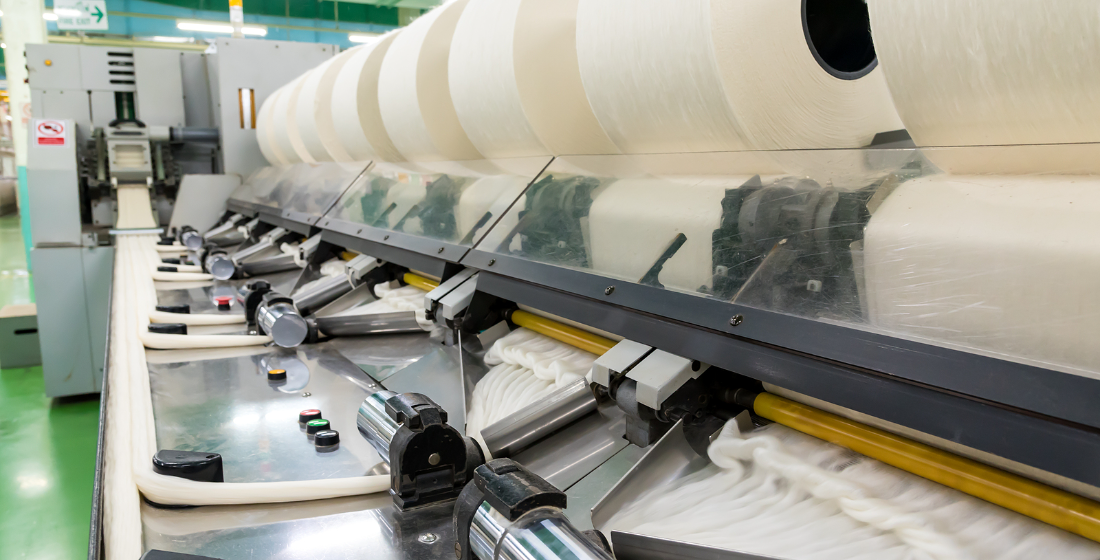DFIs combine to modernise Uzbekistan's ‘horrendous’ cotton industry
The EBRD and the IFC have provided $130 million of financing for a project aimed at upgrading the equipment, practices and labour rights of an industry infamous for its historical use of modern slavery.

The EBRD and IFC have provided a $130 million financing package to Indorama Agro, aimed at supporting the modernisation of Uzbekistan’s cotton industry. The funding will back the efficiency-enhancing plans of Indorama, an established cotton industry player engaged in rotational crop farming, a systematic approach to selecting locations and cycles of crop planting. It will also serve to establish new standards for workers’ rights in the notorious industry, which for over 70 years has relied on the widespread use of modern slavery at harvest time.
“The cotton industy in this country has such a horrendous legacy, which stretched over decades and used all sorts of terrible practices such as child labour,” says Anton Usov, the EBRD’s chief spokesman for Central Asia, Russia, Belarus, Mongolia. “This project represents a chance to address that legacy, which is great news for both the country and its economy.”
The EBRD’s financing consists of a $60 million capital expenditure (capex) loan and a $10 million-equivalent working capital loan provided in Uzbek sum. The IFC is providing a parallel loan of $60 million. The funds will help finance the development of around 50,000-hectares of farmland in two regions of Uzbekistan, Syrdarya and Qashqadarya, while also supporting independent farmers through contract farming. The capex part of the financing will go toward improving the efficiency of the industry’s practices, including introducing precision-farming and land-leveling techniques, ginning facilities, and modern irrigation practices.
Indorama, a subsidiary of Singapore-based chemicals giant Indorama Corporation, have raised another $145 million in equity for the $285 million project. “We’re not joining from scratch, we have a very strong sponsor guaranteeing the deal; a company that has already invested a lot in the equity to kick off the operations,” says EBRD’s head of agribusiness, Natalia Zhukov. “So, along with the project’s compliance with all our own internal regulations and standards, that’s a very strong risk mitigating factor for us.”
Cotton clusters, laser levelling and labour rights
Uzbekistan has long history of using forced and child labour to hand-pick cotton at harvest time each autumn. According to the World Bank, up to 3 million people were involved in the harvest of 2014. But since President Shavkat Mirziyoyev succeeded the autocratic Islam Karimov in 2016, the country has started to open up its economy and forced labour in the cotton industry has been made an offense, with local activists and civil society groups allowed to independently monitor the harvest.
Following the political transition, the Uzbek government launched agricultural reforms particularly targeting the cotton sector; aiming to encourage new private investments by leasing large tracts—or “clusters”—of land to private players who are integrated into the cotton value chain The approach has been supported by the International Labour Organization (ILO) and international lenders such as the EBRD and the IFC, which have been supporting the initiative through technical assistance and lending programmes.
“The cotton clusters approach involves the government pooling the farming companies and allocating land, as well as adding processing to the value chain,” explains Zhukov. “There are now around 90 clusters covering the majority of the cotton industry in the country.”
The government of Japan, Indorama Corporation and the EBRD Shareholder Special Fund are providing technical assistance of around €305,000 ($360,411) to promote gender and economic inclusion activities such as training programmes for women and the rural population. The funds will also be used to assess the environmental and social impacts of the project.
Furthermore, the project will also involve the introduction of labour unions for the first time in the industry’s history. And the IFC is supporting Indorama Agro to pilot a Better Cotton Initiative (BCI) approach to promote sustainable and decent work practices and standards in cotton farming. BCI is a global third-party cotton licensing body.
“The cotton in Uzbekistan was heavily scrutinised due to its labour malpractices but the government has launched substantial structural improvements in the sector in the last three years, which have been acknowledged by the ILO,” says Zhukov. “Building on that progress, our project will improve labour standards and access to employment in underserved and rural areas—particularly in gender-focused initiatives. This is probably the first ever FDI large-scale private investment in the sector.”
New technology
The EBRD loan is also supported by the EBRD’s Finance and Technology Transfer Centre for Climate Change (FINTECC) programme, which helps companies in participating EBRD economies introduce innovative climate technologies and is financed by the Global Environment Facility Trust Fund. A grant of $140,800 will contribute to the introduction of GPS/laser-levelling technology; used to address the issue of uneven soil surfaces, which can negatively affect crop yield and the use of water and other resources. Indorama Agro will be the first company in the country to introduce the technology, which is widely recognised as a good agronomic and crop management practice.
“The technology is increasingly being used in developing markets,” says Mark Hughes, senior environmental advisor at the EBRD. “It gives a very flat and uniform surface so you don’t get pooling of water when you’re irrigating, as well as allowing for an even spread of chemicals and fertilisers. So it makes the whole process much more efficient in terms of water, inputs, pest control, and ultimately yield.”
With the techniques and technologies that Indorama is introducing in the project, crop yield is expected to increase from 2.5 tonnes per hectare to over 4.5 tonnes per hectare—with water use reducing by 30%.
The agricultural sector is one of the main drivers of GDP growth in Uzbekistan and accounts for 26% of the total labour force. The country is the world’s seventh largest cotton producer, so the commodity remains essential to the Uzbek economy. This Indorama-led project comes as part of the broader country-level work of the various DFIs and multilateral organisations to support the Uzbek government in its efforts to implement sustainable farming practices in the cotton sector, particularly through the use of market-driven solutions.
“The industry has thus far been largely state-run, so it really needs an acceleration of the transition to a more robust local production with high-standard practices,” says Zhukov. “I firmly believe this project will act as a strong catalyst for the market and provide a model for future investments in the sector.”





